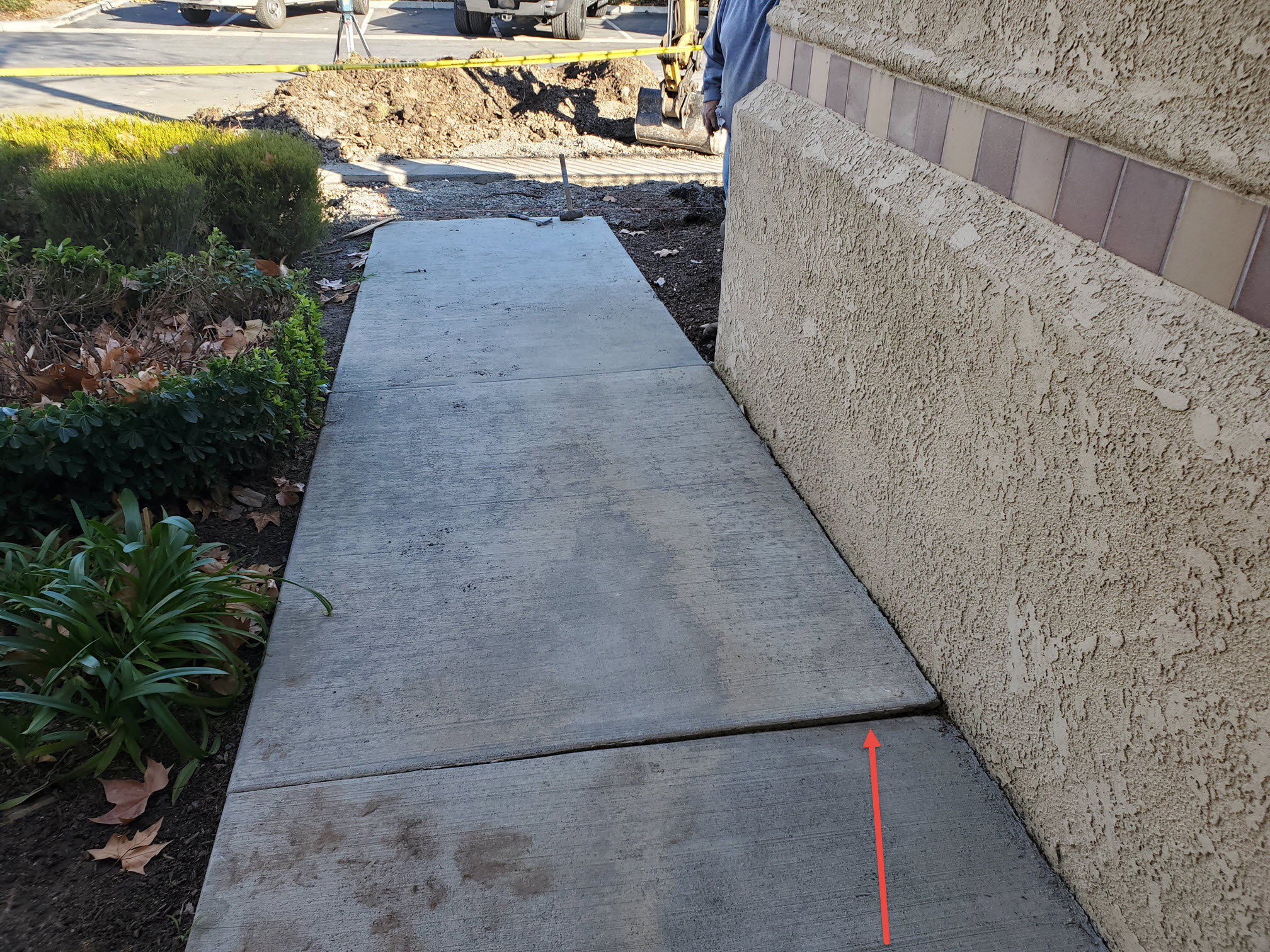What Causes Concrete Sidewalks to Crack, Sink, and Heave?
Posted on May 29, 2020 by Rafael CantilloAs materials go, concrete is fairly durable. This durability is why it's the material of choice for the sidewalks and curbs that are in your parking lot. Durable though it may be, concrete is not invincible. Over time, a number of problems can cause concrete to degrade. Once it does, it begins to cause problems for the property owner. In this post, we'll take a look at how concrete sidewalks degrade over time, go into some specifics about the types of damage that can be done, and talk about the dangers of leaving damaged concrete unrepaired. By the end, you should have a good idea of the types of stresses that your concrete faces on a daily basis and be a more informed property owner.

How do concrete sidewalks degrade over time?
Very few materials are immune to the effects of weather, and concrete is no exception. As the sun beats down on the concrete and then the night air cools it, the material goes through a cycle of expansion and contraction. These effects are small, but over time they can form tiny cracks in the concrete. This is made worse when rain, dew, and other moisture sources get into those cracks and freeze, expanding the crack. This same cycle can cause weakness in the concrete base that causes the concrete to sink. Concrete isn't the only substance that is impacted by these weathering effects. The ground underneath it is as well. When the ground changes too much, the concrete that it supports will heave. A common cause of concrete cracking, sinking, and heaving is a lack of proper soil compaction.
There are other conditions that can cause these types of damage as well. Let's take a closer look at each of them so that you'll be aware of all the forces that are working to damage your concrete.
What Causes Concrete Cracking?
In addition to the effects of weather, there are a couple of other factors that can cause your concrete to crack. The first is stress placed on the material. Concrete is tough, but it does have weight limits. Concrete used for sidewalks and curbs is different from the concrete used for shop floors and isn't made to withstand as much weight. This isn't usually a problem, as generally the only thing that will be traveling across your concrete sidewalks is people. Do be mindful of weight limits, though, if you ever need to transport potentially heavy equipment over the sidewalk.
The second factor, improper installation, can cause concrete to crack prematurely. This isn't something you can control after the fact, so when hiring a concrete company to install your curbs and sidewalks, be sure that they are qualified. A good concrete contractor will know how to mix the concrete properly so that it doesn't end up weakening prematurely.
What Causes Concrete Sinking?
We've talked about how weathering that degrades the base can cause your concrete to sink. When the concrete base is weakened, it becomes unstable. The weight of the concrete then becomes too much and the sidewalk begins to sink. There are also several problems with the soil underneath that can cause the concrete to sink. Concrete needs soil to be compacted before it is installed. Poorly compacted soil will sink under the weight of the concrete. If this happens after the concrete has hardening, it's going to cause the concrete itself to sink. Again, picking a qualified installer is key to ensuring that your concrete lasts as long as possible.
Another soil problem arises when heavy water flow can erode away the soil underneath your concrete. With part of its support base now missing, the concrete will sink. In many cases, a good concrete contractor will be able to identify areas where heavy flows of water may occur and design a drainage system that will protect the concrete.
What Causes Concrete Heaving?
Concrete will heave when the ground beneath it shifts. One of the most common reasons, as stated earlier, is ground changes due to freezing and thawing. If the ground below concrete becomes moist and freezes, it will expand upward and cause heaving. Clay soils in particular can expand simply from absorbing too much moisture. In these cases, heaving can happen even in climates like California's where it doesn't get below freezing often. The opposite case can occur as well. If the ground dries out too much, it will shift downward and cause the concrete to heave in that direction. Many other things can cause heaving also, such as dead tree roots decaying away and causing the ground to collapse into the void they left.
What are the dangers of damaged concrete?
When concrete gets damaged, it causes a very serious trip hazard. Tripping on concrete is one of the more serious falls someone can take on your property because people tend to fall forward when tripping. Rather than landing on their backside, which provides some natural protection, they'll land on their wrists. This can sprain the wrist, injure the rotator cuff, or even break the person's arm.
In addition to endangering your customers, slip and fall injuries will also take a big chunk out of your profits. The average cost of a slip and fall injury is $20,000 and the average cost to defend yourself from a claim is a whopping $50,000. Even if there are no slip and falls, your business may still suffer. If the damage to your sidewalk is bad enough, it could warrant an ADA compliance violation.
Conclusion
If you already have damaged concrete, then now is the time to call someone out to repair it before it gets worse or someone gets injured. If you are starting a new concrete project and want the best chance of minimizing damage in the future, you'll need a team of concrete experts that will take all the steps required to ensure a quality, long-lasting installation. For both of those, you can call the team of professionals at Empire Parking Lot Services. Contact us online or at 714-633-0300 to have our experienced concrete division assist you with your next concrete-related project. Please check out our "Anatomy of a Parking Lot" blog for a more in-depth view of what makes up a parking lot.
Other Concrete Related Blogs:




Comments